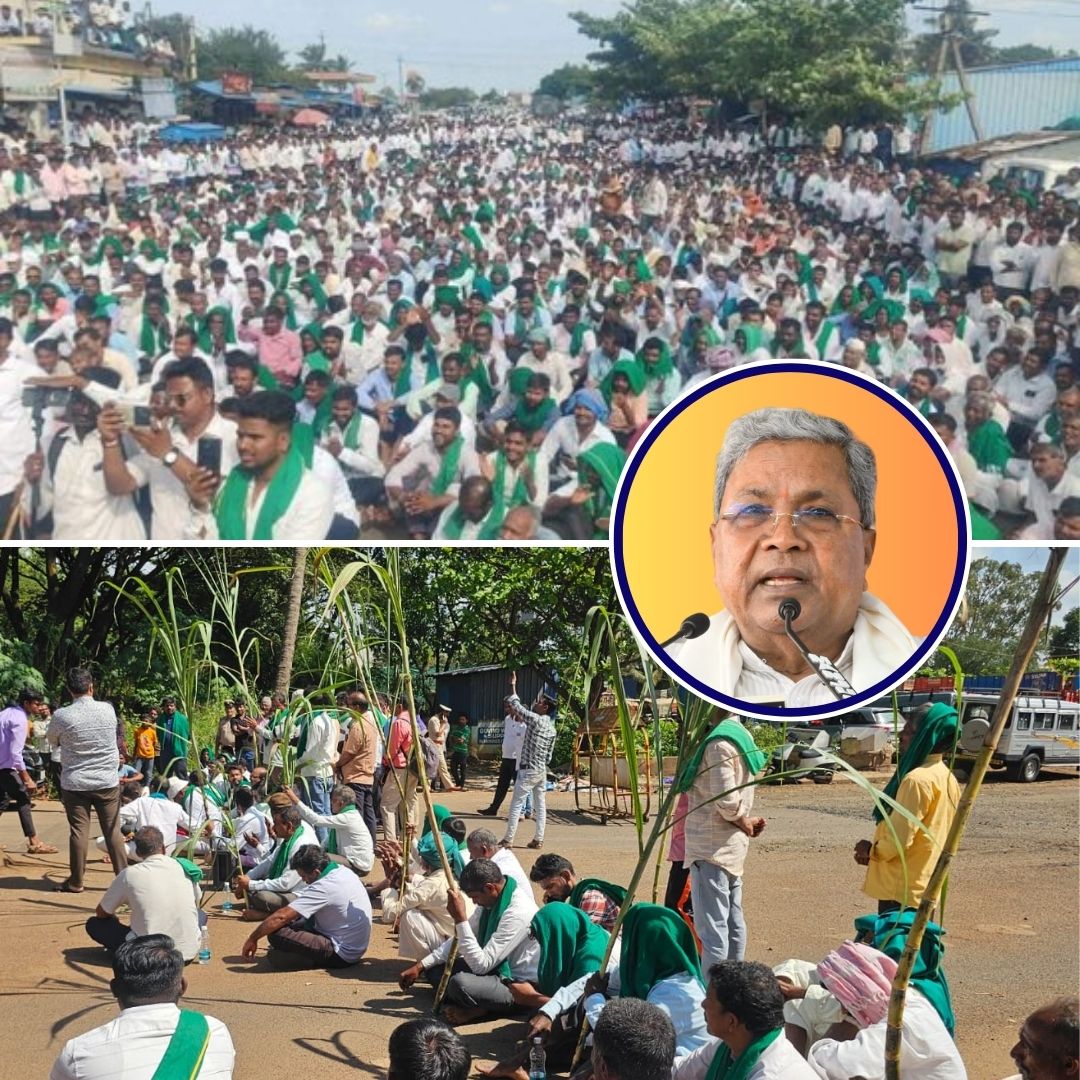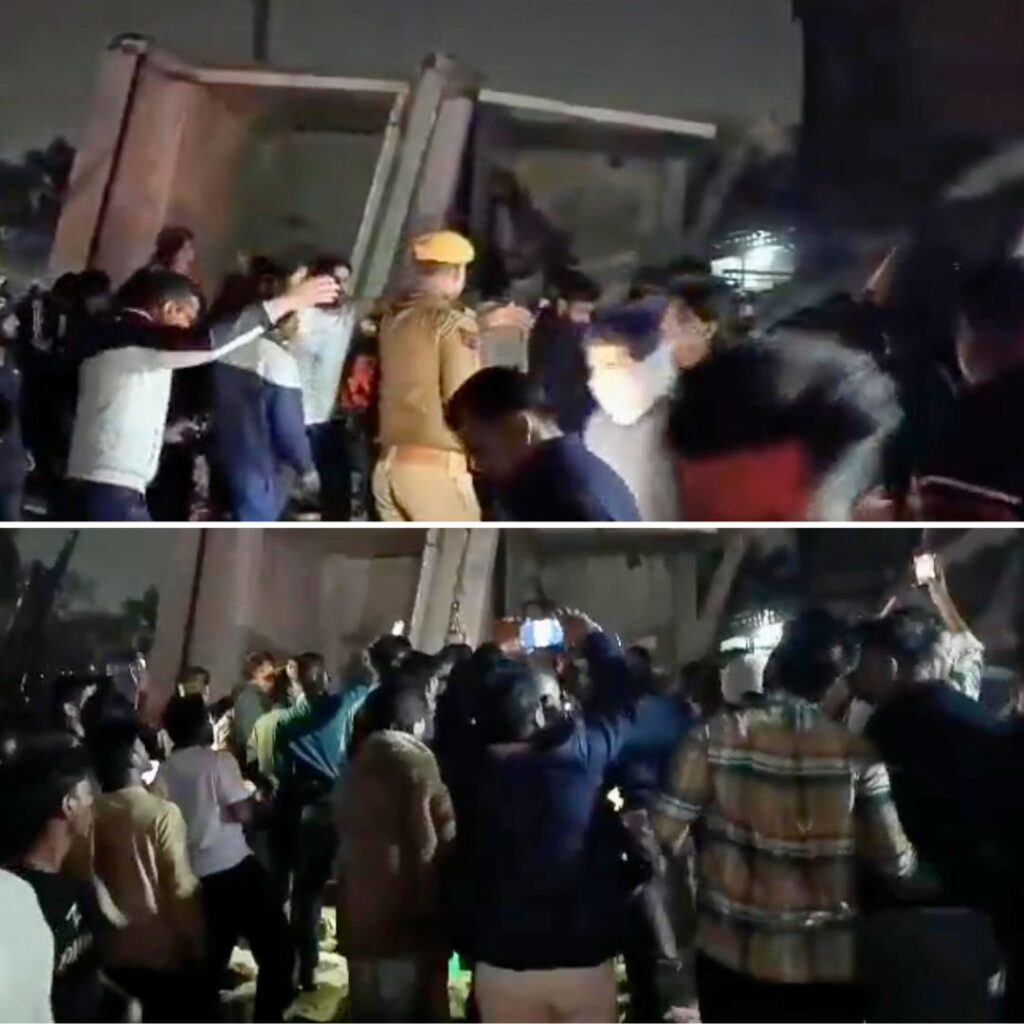Sugarcane farmers in Karnataka’s Belagavi district have intensified their protest demanding a minimum price of ₹3,500 per tonne, spurring widespread disruptions across the region.
The agitation escalated recently at Gurlapur Cross when hundreds of farmers surrounded Minister H.K. Patil’s car after unsuccessful talks, leading to tense scenes marked by road blockades and police intervention.
Officials, including Minister Patil, have acknowledged the farmers’ grievances and promised further dialogue, yet the deadlock remains, triggering one of the largest agrarian protests Karnataka has seen in recent years.
Protest Escalates with Strong Farmer Unity
Farmers under the banner of regional associations have organised shutdowns and blockades in towns such as Athani, Gokak, Chikkodi, and Hukkeri, halting business activities and traffic on key highways. The protest has brought operations at over 26 sugar factories in the area to a halt, signalling a major disruption in the sugarcane supply chain.
Slogans like “Bēkē bēku nyāya bēku” (We want justice) echoed as farmers rejected government proposals including a ₹3,200 per tonne offer, insisting their demand for ₹3,500 was necessary to cover rising costs and losses. Political figures such as BJP state president BY Vijayendra have joined the protests, criticising the Congress-led state government for its handling of the crisis and amplifying the farmers’ message.
Police managed the large gatherings and occasional scuffles, while medical assistance was promptly rendered when one protester collapsed during the agitation.
Historical and Political Context
The current unrest is rooted in long-standing issues over sugarcane pricing and payment delays in Karnataka, where many mills defer payments or offer prices below the Central Government’s Fair and Remunerative Price (FRP).
Farmers want the state to follow Maharashtra’s model, which ensures timely and structured payments at higher rates. Despite generating substantial revenue from sugarcane industries, state officials have yet to announce a revised State Advisory Price (SAP), creating frustration.
The protest has drawn attention not just to economic grievances but to political responsibility, with opposition leaders accusing the ruling party of neglect and some warning of intensified political battles. The death of farmer Vithal Arabavi in a similar protest years ago remains a sobering reminder of the stakes involved.
Government Response and Ongoing Negotiations
Minister H.K. Patil acknowledged the farmers’ demands and stated that Chief Minister Siddaramaiah had directed ministers to engage with the protesters and find a resolution.
However, no compromise has been reached yet, with farmers setting deadlines and threatening escalated action if their demands remain unmet.
The district administration is involved in ongoing talks, attempting to mediate between farmers and sugar mills, but the complex nature of pricing and mill ownership complicates swift solutions. The state leadership faces political pressure from multiple sides, balancing farmer welfare, mill interests, and electoral calculations.
The Logical Indian’s Perspective
The dynamics of this protest highlight the critical need for transparent, empathetic governance that honours the voices of farmers, whose livelihoods are fundamental to regional food security and economy.
The Logical Indian advocates for peaceful dialogue and inclusive solutions that acknowledge both economic realities and social justice. Ignoring such grassroots movements risks prolonged unrest and community distress.
The sugarcane farmers’ protest in Karnataka enters Day 6.
— Nikhil Kumar (@Nikhil_Kumar_k) November 4, 2025
Maharashtra fixed ₹3,550/tonne. The Central Govt ensured FRP.
Yet Congress’s Karnataka Govt, the self-proclaimed “champion of farmers,” hasn’t fixed a price.
When politicians own the mills, who stands for the farmer?… pic.twitter.com/lWGr8hR7IB












